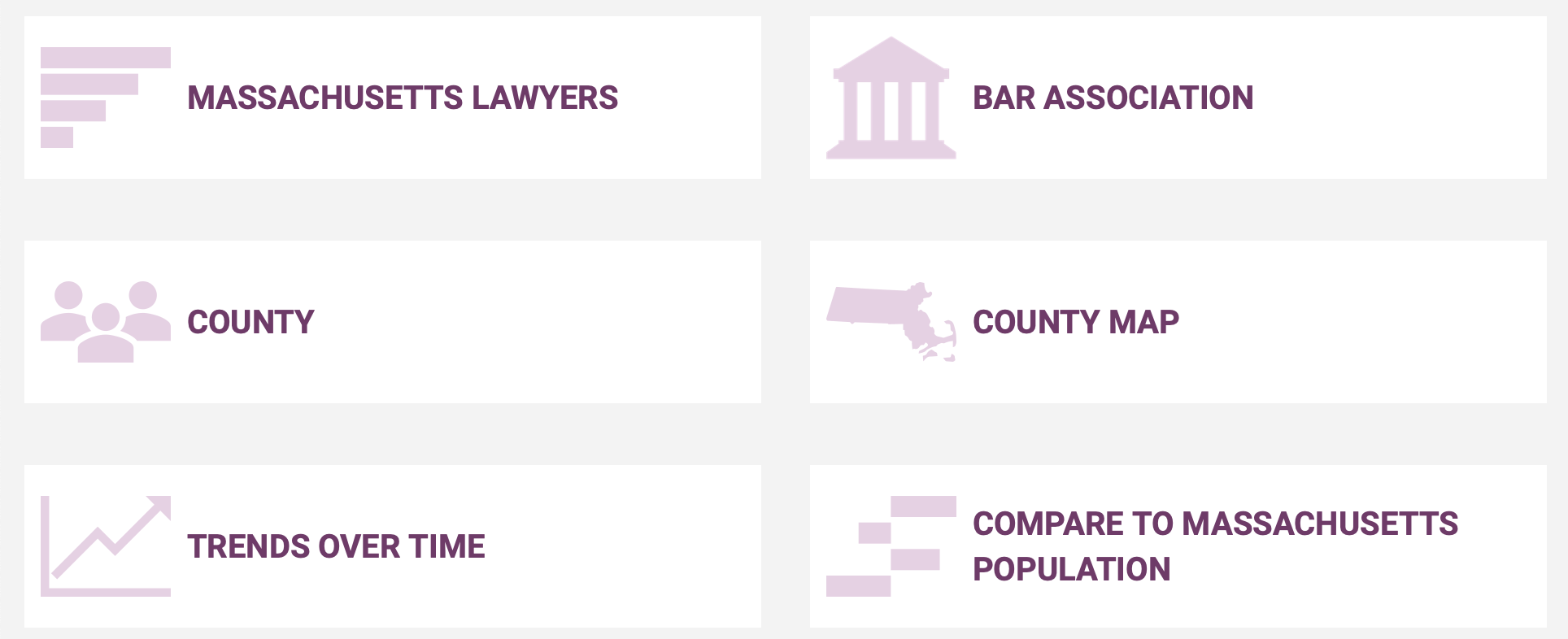Massachusetts Lawyer Census
-
Collection of demographic data per SJC Rule 4:02 is solely to develop services and programs to aid lawyers. This data is crucial to increase diversity, equity and inclusion in the Massachusetts legal profession and to enable the SJC Standing Committee on Lawyer Well-Being to offer programs and services to help lawyers improve their professional and personal well-being.
*Responses are not associated with BBO Attorney accounts and do not contain identifiable information that would reveal any individual’s identity. The survey contains demographic questions about individual attorneys and their law practice. It takes between 5 and 10 minutes to complete. The SJC Standing Committee appreciates honest answers to these questions, and encourages individuals to answer every question substantively, although most questions include a prefer not to answer option.
-
The 2019 Report issued by the original SJC Steering Committee on Lawyer Well-Being (the “Report,” and the “Steering Committee,” respectively) stressed a “strong and on-going commitment to enhancing diversity, equity and inclusion in all our practices” as being “crucial to our individual and collective well-being,” and further noted that, without demographic information about the makeup on the Massachusetts bar, we cannot begin to address “concerns about a lack of diversity in the Commonwealth’s legal community, or to create programs to better address the needs related to equitable participation in the legal community without this foundational information.”
Until 2019, neither the Massachusetts Supreme Judicial Court (the “SJC”) nor the Board of Bar Overseers (the “BBO”) had collected any demographic information regarding the makeup of the Massachusetts bar, as such we had little concrete understanding about the current diversity of attorneys and legal professionals in the Commonwealth with respect to race, origin, gender identity, sexual orientation, disability status, employment status, location, practice area, bar association affiliation, or other important factors.
Pursuant to recommendations in the Report, the SJC sent a one-time voluntary survey to all attorneys registered in Massachusetts to kickstart this process in the Fall of 2019. However, only approximately one-third of attorneys responded, resulting in a continuing absence of the data needed in order to meaningfully support attorney well-being and improve diversity, equity and inclusion in the Massachusetts legal profession. Moreover, in order to understand the extent of isolation and alienation due to race and other identity factors, the SJC and its ongoing Standing Committee on Lawyer Well-Being (the “Standing Committee”) simply need better demographic data.
The Report recommended that a system to collect demographic data on an ongoing basis be integrated into the annual registration process. To incorporate this survey into the annual registration process, in 2020, the SJC amended Rule 4:02, entitled “Periodic Registration of Attorneys,” to include a requirement that attorneys complete a demographic and law practice survey the results of which will be used solely for the purpose of developing services and programs to aid lawyers. Pursuant to the amended version of Rule 4:02, all registering attorneys must now complete the Attorney Demographic and Law Practice Survey as part of the registration process.
For further reading about the importance of research and metrics to improve diversity, please read the Massachusetts Bar Associations’ Comment to changes to Rule 4:02.
-
Download the 2020-2021 Census Report, here.
-
If you are experiencing troubles accessing and completing the survey, please go here: https://lawyerwellbeingma.org/survey-troubleshooting. If you are still unable to complete the survey, please email demographic-survey@lawyerwellbeingma.org.

